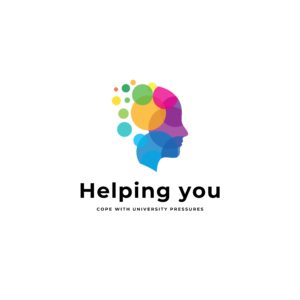Are you feeling down, in despair with no hope, no stopgap, experiencing emotional pain? Do you feel like there’s a dark pall swimming over you? Therapy could be the solution.
Have you ever experienced anxiety and panic attacks, depression, psychosis or any other form of mental illness? Endured loss? Have you been feeling dirty and shamed because you’re a victim of abuse? Are you spooked because of your mental health? Therapy could really you help understand these symptoms.
Have you been thinking about seeking therapy and searching but have no idea where to start? This straightforward guide will help you understand the several types of therapies. It will also help you choose which might be the most appropriate one for you.
Therapy – a type of treatment aimed at relieving emotional distress and mental health problems. It involves meeting and talking to the therapist with the aim of understanding the problem(s). Therefore, to get more out of it, you must be willing to engage with the process. The therapist’s role is to usher you through the personal and painful experiences of your life.
Talking indeed is healing and therapy “talking cure” could help to alleviate both physical and emotional pain through talking.
Although it may matter what type of therapy you choose, the most important thing is having a good therapist. A therapist – client therapeutic relationship facilities mutual respect and willingness to engage.
For Black students, representation also plays an important role because of that unspoken connection. For example, if a student has experienced racism and they are distressed, they will most likely want to see a Black therapist. They may feel that certain conversations about race, police brutality, discrimination, microaggressions and Black cultural traditions may be difficult for those of a different race to fathom.
Therapy can help restore your confidence and strength as well as evoke hope from within.
Cognitive Behavioral Therapy: (CBT)
The crucial concept in CBT – What we think and what we do impacts how we feel. Our thoughts, feelings or behaviors are all connected and influence each other. Sometimes our feelings are also going to influence how we think and act.
For example: After breaking up with a partner – one might start having negative thoughts e.g., they are a failure, they will never have another relationship.
One may start feeling hopeless, lonely, depressed – so as a result they may then start avoiding meeting people, staying in bed, over or undereating etc.
Instead, of you becoming trapped in a negative cycle, isolating yourself at home and feeling bad about yourself. The CBT therapist will help you confront this way of thinking to the point where you can accept that many relationships actually end (that’s a fact of life). The result could be you becoming more socially active and able to meet new people.
The role of the therapist is to help you make sense of the problems by breaking them down into smaller parts. You may discuss any negative thoughts and how destructive these can be for you. In a nutshell CBT encourages one to look at themselves in a different way, which will be useful in their daily life. It focuses on changing one’s thoughts and false beliefs.
CBT is effective in many disorders like.
- Anxiety Disorders
- Phobias
- Depression
- Bipolar Disorder
- Eating Disorder
- Trauma related Disorder
- Borderline personality disorder
- Mood disorders
- Obsessive Compulsive Disorder (OCD)
Dialectical Behavior Therapy: (DBT)
DBT is like CBT, and it’s mainly used to help individuals change unhelpful ways of thinking and behaving while also accepting who they are. It was initially designed to treat people experiencing persistent and longstanding suicidal thoughts associated with borderline personality (BPD). “Dialectical” refers to a logical discussion of ideas and opinions, with the aim of learning how to deal with issues and accept difficult emotions. It often uses a problem solving and acceptance-based framework. “It’s used to treat disorders that have a lot of emotional dysfunctions,” DBT helps with emotional regulation, distress tolerance, acceptance, and mindful awareness.
A DBT therapist will help you to find out the balance between the changes of life and acceptance regarding those changes. Using this type of therapy, therapists use techniques and share skills with individuals on how to handle new challenges of life.
Usually, DBT combines individual therapy with a weekly group session focused on mindfulness, emotion regulation, and other skills.
Used to treat: Borderline personality disorder, Chronic suicidal thoughts, Self-harming, eating disorders, Substance misuse, Mood disorders and post-traumatic stress disorder (PTSD).
“For critical problems such as addiction or chronic suicidal thoughts”
Psychodynamic Therapy:
The aim of Psychodynamic therapy is to understand how our current feelings and behaviors are shaped by our past experiences and our unconscious mind and impulses. It enables one to examine how their past incidents and relationships relate to the current problems. This type of therapy is derived from Psychoanalysis which is based on the theory that unconscious conflicts are at the heart of psychological issues and bringing these unconscious conflicts into conscious awareness may help resolve symptoms.
Psychodynamic seeks to get to the root of the problem to create long-lasting change and it’s based on the principles of psychoanalysis and is an in-depth form of talk therapy. It involves recognizing, acknowledging, and overcoming negative feelings and repressed emotions to improve the client’s relationship with himself, with others and with the world around him. Therapists use this approach to help people identify unconscious beliefs that can impact their mood and behavior many times flowing from their childhood.
The assumption is that someone is having emotional or psychological problems due to unconscious conflicts often unresolved from childhood.
Used to treat:
- Self esteem
- Self confidence
- Self-expressions
- Depression
- Anxiety
- Personality disorder
- BPD
In Conclusion:
If you’re still not sure which type of therapy is best for you, talk to your Wellbeing Advisor or GP. Given a little bit of information about what you’re struggling with and what you hope to accomplish, they may be able to provide some insight to help you make your choice.
Support:
In the UK most GPs have a FREE Talking therapies (IAPT) service attached to it – ask to be referred or Google and self-refer.
Click Here to find support services provided by your university in England and Wales
Enter postcode to find nearest support Here
For Self-Help Leaflets click Here


Pingback: ADHD: Mental Health and Wellbeing of University Students and Support. – AWordPressSite